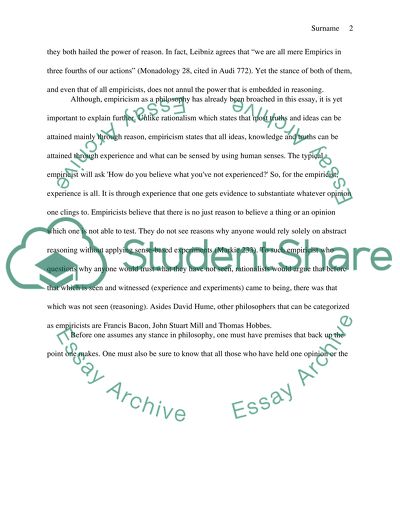Cite this document
(“Rationalism (Rene Descartes) and Empiricism (David Hume) Essay”, n.d.)
Retrieved from https://studentshare.org/philosophy/1437873-rationalism-rene-descartes-and-empiricism-david-hume
Retrieved from https://studentshare.org/philosophy/1437873-rationalism-rene-descartes-and-empiricism-david-hume
(Rationalism (Rene Descartes) and Empiricism (David Hume) Essay)
https://studentshare.org/philosophy/1437873-rationalism-rene-descartes-and-empiricism-david-hume.
https://studentshare.org/philosophy/1437873-rationalism-rene-descartes-and-empiricism-david-hume.
“Rationalism (Rene Descartes) and Empiricism (David Hume) Essay”, n.d. https://studentshare.org/philosophy/1437873-rationalism-rene-descartes-and-empiricism-david-hume.


